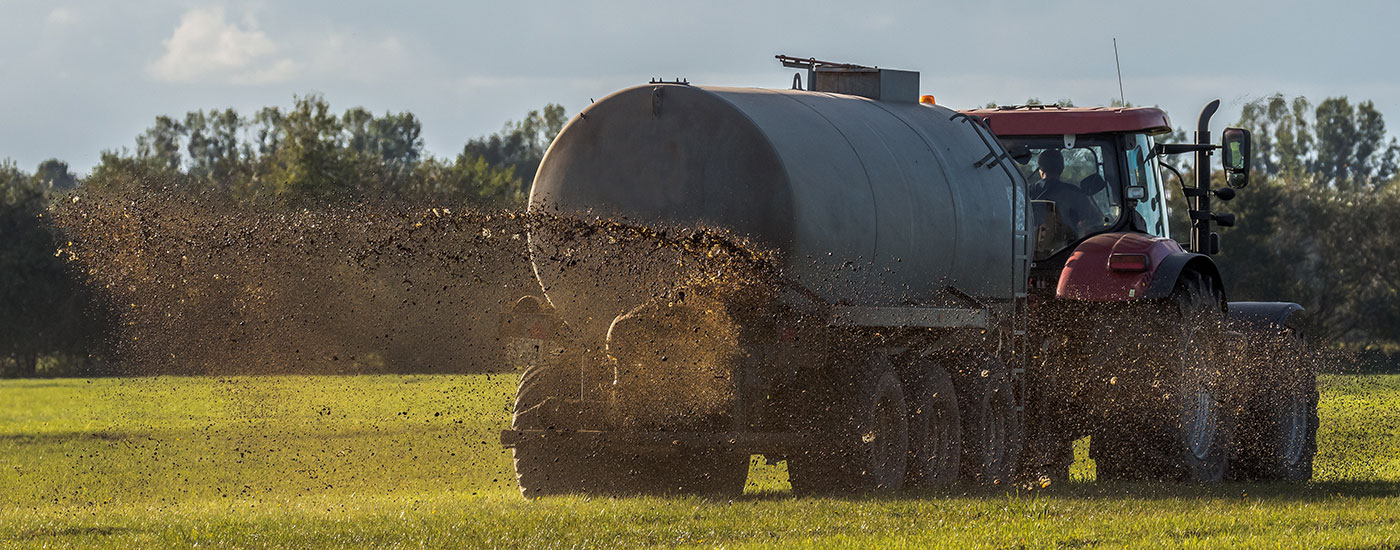Spreading manure and fertilisers keeps the soil rich in nutrients so that crops can grow to their fullest. To keep the soil fertile, a number of critical nutrients are required, many of which are naturally found in soil. The chemical composition of soil varies depending on a range of factors, including the environment and the types of crops previously grown there. Manure and fertilisers can be used to rebalance soil that’s been depleted of chemicals and give crops an added boost.
Manure Spreading
Send us a message

What is Manure Spreading?
Manure spreading is the process carried out by a manure spreader or muck spreader. These are pieces of agricultural machinery which is used to evenly distribute manure across farming space and fields. The use of manure allows farmers to regulated the fertility of the soil and maintain the quality. When a soil is deficient in the vital nutrients required to effectively grow healthy crops, agricultural services can be enlisted to test and determine the best treatment to revive it. There are various types of fertilisers available for use alongside the essential need to identify the correct type of manure spreader to complete the job, in order to gain the highest yield possible from the harvest.
What is a Manure Spreader?
The manure spreader is a large piece of agricultural service machinery which allows for the even spreading of manure across fields. The spreader is a trailer which can be towed by a trailer which propels the rotating mechanism. Most manure spreaders are made up of several parts, which are; the upper beater, lower beater and the spreader. There are typically two types of manure spreader, within the tractor category domain; tractors based and ground-based. The tractor will use various gears in order to manage various elements of the spreader, as follows;
- First gear drives the upper beater
- Second gear drives the lower beater
- Third gear drives the feed conveyor
- Top gear drives the actual spreader
What Manures & Spreaders Do We Use?
AWSM Farming offers the spreading of farm service manure, including poultry manure, composts, industrial by-products and biosolids. We apply manure using machinery from our extensive range of spreaders. Our manure spreaders range from Vertical beater K Two Rear Discharge Spreaders to Challenger Terragator with Tebbe spreading bodies, complete with built-in weight cells.
Due to increasing regulations and the desire to offer our customers the best manure supplies to make use of nutrients in the most economical way, we have invested in weight cells. These, alongside computer-controlled application rates, ensure that we can provide even application of product every time.
Spring is becoming the most popular time of year to perform manure spreading agricultural services, in order to ensure timely application for arable crop growth. Our manure spreaders are equipped with low ground pressure tyres, weigh cells, onboard computers and large diameter spreading discs. The inclusion of this technology into our spreaders allows the product to be spread easily and accurately, ensuring minimal damage to growing crops.
Loading of manure spreaders is undertaken using telehandlers, loading shovels and 360 excavators. Will all equipment complete with large buckets that ensure spreaders are loaded swiftly to ensure the job is completed efficiently.
Contact AWSM Farming today to inquire about specific pricing or to request a specialised agriculture service.
When to spread manure?
It’s best to spread manure during late winter/spring and summer when crops need nutrients to grow. Late winter/spring is the best time for plants to absorb nutrients, helping you to boost your yields and minimise the nutrients lost to the environment. There are government-enforced regulations on spreading manure throughout the year, so it’s wise to check when you’re allowed to carry out your plans.
How to spread cow manure?
A pitchfork and rake might suffice if you were to spread manure on your garden. If you’re spreading cow manure on an agricultural lot, then without the help of a spreader, you’ll waste a lot of time ensuring your land is fertilised. Using a spreader means that you can spread cow manure evenly, accurately, and efficiently.





